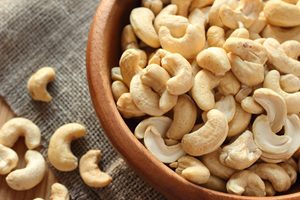
Researchers predict that approximately 15 million people in America alone have food allergies. This potentially deadly condition impacts one in every 13 children – roughly two per public school classroom.
The Centers for Disease Control and Prevention (CDC) estimates that the number of children with food allergies has risen by 50 percent from 1997 to 2011. Of these food allergies, reactions to tree nuts like walnuts, almonds, hazelnuts, cashews and pistachios are among the most common.
According to Food Allergy Research and Education (FARE), some children with these types of allergies eventually outgrow them, but over nine times that many never do and have to spend their lives avoiding nuts and tree nut by-products to be safe.
However, scientists with the U.S. Department of Agriculture's Agricultural Research Service think they may have developed a hypoallergenic tree nut which would allow people with nut allergies to consume them without suffering from rash or anaphylaxis.
"Many nut allergies are triggered when the immune system recognizes specific proteins in the food and releases the antibody immunoglobulin E (IgE) to latch on to the allergen, thereby causing reactions from mild itching to life-threatening anaphylaxis, a whole body reaction that may include an itchy rash, throat swelling, and low blood pressure," writes Yael Maxwell of The Huffington Post.
Because they knew the problem surrounding the allergies was not the release of the IgE, the researches decided to alter the shape of proteins in cashews so that the antibody would not be able to recognize and bind to them, causing a reaction.
While this is just an initial experiment, it does bode well for food allergy sufferers as it indicates that there might be a way to create nut products that do not cause allergic reactions. For more information on allergy prevention and news, follow along with this blog or visit us online today!









